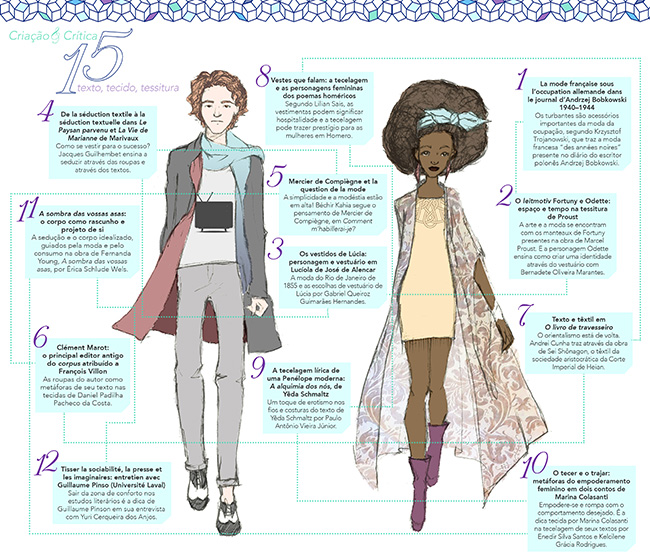Making vesture speak: weaving and female character in Homeric Poetry
DOI:
https://doi.org/10.11606/issn.1984-1124.v0i15p7-19Keywords:
Homeric society, female character, weavingAbstract
The aim of this article is to demonstrate in which ways vesture is presented in Homeric society. We argue that weaving, being exclusively female work in Homer, is important so that women may obtain prestige and fame. The Odyssey shows us that offering clothes as a gift was an important step in the hospitality type-scene, consolidating host-guest friendship. Finally, we argue that in Homeric narrative vestment is able to communicate.
Downloads
References
BERGREN, A. L. T. “Language and the female in early Greek thought.” Arethusa 16, pp. 69-95, 1983.
DUARTE, A. S. Cenas de reconhecimento na poesia grega. Campinas: Editora Unicamp, 2012.
FLETCHER, J. “Women’s space and wingless words in the Odyssey.” Phoenix, Vol. 62, no. 1/ 2, pp. 77-91, 2008.
JONG, I. J. F de. A narratological commentary on the Odyssey. Cambridge: Cambridge University Press, 2001.
LOURENÇO, F. Ilíada. Lisboa: Ed Cotovia, 2005.
_____________. Odisséia. Lisboa: Ed. Cotovia, 2003.
MUELLER, M. “Helen’s Hands: weaving for Kléos in the Odyssey.” Helios, Vol. 37, No. 1, pp. 1- 21, 2010.
PEDRICK, V. “The hospitality of noble women in the Odyssey.” Helios 15, pp. 85-101, 1988.
Downloads
Published
Issue
Section
License
Authors who publish with this journal agree to the following terms:
- Authors retain copyright and grant the journal right of first publication with the work simultaneously licensed under a Creative Commons Attribution License that allows others to share the work with an acknowledgment of the work's authorship and initial publication in this journal.
- Authors can enter into separate, additional contractual arrangements for the non-exclusive distribution of the journal's published version of the work (e.g., post it to an institutional repository or publish it in a book), with an acknowledgment of its initial publication in this journal.
- Authors are permitted and encouraged to post their work online (e.g., in institutional repositories or on their website) before and during the submission process, as it can lead to productive exchanges, as well as earlier and greater citation of published work (See The Effect of Open Access).



